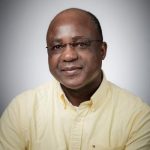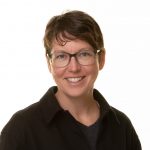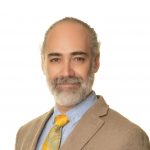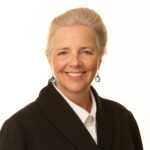Environment
Information Box Group
Altaf Arain
Professor
Associate Member: Civil Engineering
Dr. M. Altaf Arain‘s research program focuses on hydrometeorology, climatology, evapotranspiration, forest and agricultural carbon and water cycles and ecosystem, watershed and global climate models. He has established a multidisciplinary ecosystem restoration and environmental sustainability research program that explores the interactions and feedbacks between biogeochemical and hydrologic cycles in different-age and -species forest ecosystems and agricultural crops. As part of this program, he has established Turkey Point Environmental Observatory, comprising five flux tower stations near Lake Erie in Southern Ontario, which are part of Global Water Futures (GWF), Ameriflux, global Fluxnet and US-Canada Global Centre programs. Using ground based (eddy covariance, soil CO2 efflux, sapflow systems) and airborne (e.g. drone and satellite remote sensing) his group is exploring carbon sequestration capabilities, water use and sensitivity and resilience of plantation or managed forests and crops to future climate change and extreme weather events. His Lab is also involved in the development of the Canadian Land Surface Scheme Including Biogeochemical Cycles (CLASSIC) used in the Canadian Earth System Model (CanESM) for climate predictions and integrated biogeochemical and hydrologic modelling systems (MESH-CLASSIC) for catchment-scale water cycle studies.
Sean Carey
Professor
Dr. Carey directs the Watershed Hydrology Group and his research interests include hydrological, biogeochemical and land surface processes in natural and human impacted environments.
The group Dr. Carey uses field, laboratory and modelling approaches to understand how hydrological processes interact and influence ecosystem, biogeochemical and catchment processes across scales. Dr. Carey has a particular interest in cold environments and has been working in Yukon Territory for over 20 years. In addition, the influence of landscape disturbance on catchment processes has been an area of focus as the group seeks to help both industry and regulators understand and mitigate large scale disturbance in northern regions.
Dr. Carey serves on the Global Water Futures Strategic Management Committee and is the Principal Investigator fo the Mountain Water Futures program.
Paulin Coulibaly
Professor
Jointly in SEES, and Department of Civil Engineering
Dr. Paulin Coulibaly holds a PhD in Civil Engineering from Laval University. He joined McMaster Universty in 2001 from the National Research Institute in Quebec. He holds a joint position in Civil Engineering Department and the School of Earth, Environment & Society. Dr. Coulibaly has been involved in developing hydrologic modelling and forecasting tools for Hydropower Companies, Public and Private Sectors. His research group recently developed MAC-HBV – a hydrologic model for simulating streamflow regime in ungauged basins. MAC-HBV is used by the Ministry Natural Resources for determining environmental flow in Ontario ungauged basins, and is also used around the World. Dr. Coulibaly is internationally known as an expert in Hydroinformatics (Data-Driven Methods developments and applications in Hydrology). His research interest includes: Hydro-climatic modelling; Climate Change and Water Resources Vulnerability; Hydrologic Data Assimilation/Remote Sensing Hydrology.He is Associate Editor of the ASCE Journal of Hydrologic Engineering, and is on the Editorial Board of the Journal of Hydroinformatics.
He is an active member of Professional Engineers Ontario.
Alemu Gonsamo
Associate Professor
Canada Research Chair (Tier 2) in Remote Sensing of Terrestrial Ecosystems
My research areas are on ground, airborne, and satellite remote sensing of vegetation from the leaf to the globe with special focus on:
- plant structural and photosynthetic traits;
- land surface and carbon uptake phenology;
- terrestrial ecosystem primary productivity and greenness;
- global change impact on terrestrial ecosystem productivity; and
- terrestrial carbon cycle modelling.
I have done, and am doing, remote sensing of vegetation studies at ecological monitoring sites (e.g., eddy covariance tower networks); on improved product development at regional scale (e.g., leaf area index, primary productivity and land surface phenology); and on global change impact assessment on terrestrial ecosystem productivity at regional (e.g., circumpolar land surface phenology and atmospheric CO2 seasonality) and global scales. Besides remote sensing data, I use ground measurements of plant biophysical variables, photosynthetic traits, atmospheric CO2 concentration, eddy covariance CO2 fluxes and plant phenology; gridded climate data records; terrestrial ecosystem carbon cycle models; and Earth System Model (ESM) outputs.

Alemu Gonsamo
Associate Professor
Canada Research Chair (Tier 2) in Remote Sensing of Terrestrial Ecosystems
Sang-Tae Kim
Professor
Research Goals
- Understanding of stable isotope effects in the carbonate-water systems based on laboratory-based experiments and field-based empirical studies.
- Providing the scientific community with new, accurate, and robust geochemical proxies for probing climatic, environmental, and biogeochemical processes.
- Developing novel analytical methods that greatly improve the existing analytical efficiency and cost effectiveness for Earth science communities.
Gita Ljubicic
Professor
Canada Research Chair (Tier 2) in Community-Engaged Research for Northern Sustainability
Dr. Gita Ljubicic is a Geographer with training in the natural and social sciences, who works primarily at the intersection of cultural and environmental geography. Her work is driven by a deep commitment to respecting and learning from Indigenous knowledge alongside science in order to address complex socio-ecological issues. She and her research team are dedicated to a cooperative, community-driven approach to research that involves developing and fostering working relationships with Indigenous experts and organizations throughout all stages of the research process. Gita has primarily worked with Inuit community members and organizations in Nunavut, but through collaborations she have been involved in research with Inuit, M?©tis, and First Nations communities across the Yukon, Northwest Territories, Nunavut, Nunavik (northern Qu?©bec), and Nunatsiavut (northern Labrador).
Broadly, Gita’s research efforts focus in three main areas:
- learning from Indigenous knowledge about arctic environments;
- working with and refining cross-cultural research ethics and methods; and,
- contributing to community efforts to mobilize Indigenous knowledge to inform decision-making.
Gita has worked with Inuit communities and academic partners to learn from Inuit knowledge about sea ice, caribou, plants, and water in relation to implications of climate change, importance in northern livelihoods and wellbeing, and contributions to decision-making from local to national scales. In all projects the research process itself is an important focus, where she and her team explore: i) collaborative approaches to research; ii) ethics of informed consent in a cross-cultural context; iii) participatory mapping and knowledge representations; and, v) qualitative data management practices. Taken together, the outcomes of learning from Indigenous knowledge, and working together effectively, contribute to efforts to bring together diverse perspectives and evidence for more representative decision-making. Gita and her research team have been engaged in various environmental monitoring, co-management, eduction, and cultural heritage initiatives as an important means of mobilizing research results.
To learn more about Dr. Ljubicic visit https://straightupnorth.ca/gita-ljubicic/, and for the StraightUpNorth team visit https://straightupnorth.ca/team/

Gita Ljubicic
Professor
Canada Research Chair (Tier 2) in Community-Engaged Research for Northern Sustainability
Suzanne Mills
Associate Professor, Labour Studies
Dr. Suzanne Mills adopts a spatial lens to the study of identity, work and labour unions. Over the past 15 years, Mills has developed an expertise on resource and construction employment in northern Canada and has worked with Indigenous communities to critically examine Indigenous employment plans. Suzanne’s research has asked diverse questions such as: How are unions engaging with Indigenous governments and Impact Benefit Agreements? and, How do gender and Indigenous identity influence workers’ experiences of work related mobility? Currently, Mills is leading a research project examining the experiences of LGBTQ+ workers in northern and southwestern Ontario in partnership with Unifor, the United Steelworkers and the Windsor Workers Centre.
Maureen Padden
Associate Professor
Not currently accepting graduate students
Antonio Páez
Professor
Associate Member: Civil Engineering
Antonio Páez is full professor in the School of Earth, Environment & Society at McMaster University. Recent work includes studies on accessibility, spatial filtering, aging and mobility, spatial analysis of qualitative variables, transportation and social exclusion, the influence of the built and social environments on travel behavior, social networks and decision making, telework adoption, and blood donor behavior and trends. Dr. Paez has published widely, and is author or co-author of over 110 papers, many appearing in leading international journals, including Environment and Planning A and B, Urban Studies, Geographical Analysis, Journal of Geographical Systems, Transportation, Journal of Transport Geography, Transportation, Transportation Research Part A, Papers in Regional Science, International Journal of Health Geographics, Growth and Change, and Social Networks. He also co-edited the books Progress in Spatial Analysis: Methods and Applications (published in 2009 as part of Springer’s series Advances in Spatial Science), and Population Loss: The Role of Transportation and Other Issues (published in 2018 as part of Elsevier’s Advances in Transport Policy and Planning Series). He currently serves as Editor-in-Chief of the Journal of Geographical Systems, and sits on the editorial boards of Transportation, Journal of Transport Geography, Geographical Analysis, and International Journal of Geographical Information Science, among others.
Elli Papangelakis
Assistant Professor
Fairley Gadsby Research Chair in Fluvial Geomorphology
Dr. Elli Papangelakis is an Assistant Professor in the School of Earth, Environment & Society at McMaster University. She has a multidisciplinary education background, with a BSc in Physics and Geography (University of Toronto), a MSc in Geography (UBC), and a PhD in Civil and Environmental Engineering (University of Waterloo). Her research focuses on the effects of urbanization and land-use change on the geomorphic processes of rivers through a combination of fieldwork, laboratory, and GIS research methods. Her primary goal is to better understand sediment transport processes, morphologic adjustments, and physical habitat characteristics of urban rivers. She is particularly interested in urban river restoration and management, specifically on assessing the performance of different restoration designs and in the development of novel river management strategies that bring together the most advanced science and technology from different fields. Most of her research focuses is confused in Southern Ontario, which provides an excellent example of heavily-urbanized and managed fluvial environments. She also works with salmon habitat restoration projects in British Columbia.
Examples of exciting new approaches her research group employs:
- Gravel augmentation to rehabilitate urban rivers
- Measuring geomorphic parameters using UAV (drone) based imaging
- GIS-based erosion sensitivity models
- Citizen science for geomorphic monitoring

Elli Papangelakis
Assistant Professor
Fairley Gadsby Research Chair in Fluvial Geomorphology
Léa Ravensbergen
Assistant Professor
Léa Ravensbergen focuses on critical transport research and explores how cities can foster more sustainable transport systems in an equitable manner. She uses a combination of qualitative (interviews, mobile ethnography, participatory mapping, observations) and quantitative (survey analysis, GIS) methods to uncover barriers to walking, cycling, and public transport. Much of her recent work has focused on gender-equity in active travel and age-friendly transport planning.
Darren Scott
Professor
Dr. Darren Scott is a Professor in the School of Earth, Environment & Society at McMaster University where he teaches courses in Geographic Information Science (GIScience). Dr. Scott was an Assistant Professor in the Department of Geography and Geosciences at the University of Louisville between 1999 and 2002, and held a Visiting Research Professor position at the Swiss Federal Institute of Technology (Zurich) in 2008. Dr. Scott’s undergraduate degree is in geography (BA. Honors and Co-op, 1991), with graduate degrees also in geography from the University of Western Ontario (MA, 1994) and McMaster University (PhD, 2000). Dr. Scott’s research program is situated at the nexus of three fields of inquiry: travel behavior, GIScience, and sustainable transportation. He has published over 100 refereed journal articles in leading transportation, regional science, and urban studies journals. His research program has been supported by grants from the National Science Foundation of the United States (NSF), the Social Sciences and Humanities Research Council of Canada (SSHRC), the Natural Sciences and Engineering Research Council of Canada (NSERC), and Geomatics for Informed Decisions (GEOIDE), among other funding agencies. In 2008, Dr. Scott established a research lab – TransLAB – in the School of Earth, Environment & Society where advanced transportation research is conducted by students working under his supervision.
Greg Slater
Professor
My research focuses on understanding the fate and transport of organic compounds, organic contaminants in particular, in the environment and on the microbial processes which control carbon cycling in both contaminated and natural environments. Research in my lab uses both traditional and novel techniques to investigate questions relating to topics ranging from organic contaminant sources and biodegradation in the environment to the metabolic processes and bio-signatures associated with microbial metabolism and carbon cycling in extreme environments. The common theme in this research is to understand the fundamental processes that control the environment around us and the impact that life, including industrial society, has on the environment and vice versa.
James Michael Waddington
Professor
Canada Research Chair (Tier 1) in Ecohydrology
Dr. James Michael Waddington’s research in ecohydrology studies the ecological and hydrological processes that underlie the structure and function of wetlands and watershed ecosystems and the distribution, movement, and quality of water.
With his research foundation firmly in hydrology and by adopting a watershed ecosystems framework, he uses innovative field experimental manipulations and ecohydrological modelling to understand watershed interactions of water, vegetation, soil and greenhouse gas exchange. His research examines the effects of wildfire, drought and resource extraction on watershed ecohydrology with a focus on ecosystems, such as peatlands, that may be sensitive to changes in hydrology. He is developing new wetland restoration approaches and designs for resource managers, fire managers and industry partners to enhance watershed resilience to climate change.
Allison Williams
Professor
CIHR Research Chair in Gender, Work and Health
Dr. Allison Williams is a Professor in the School of Earth, Environment & Society. She is trained as a health geographer in quantitative, qualitative, and mixed-methods research. She holds a Bachelors of Arts degree from Bishop’s University, a Masters of Arts degree from the University of Toronto, and a Doctor of Philosophy from York University. In 2008. She engages in social justice research to inform policy and program change. Most recently, she is leading a partnership grant to create carer-inclusive workplaces.
Robert Wilton
Professor
Dr. Robert Wilton earned a Hons. B.A. at the University of Hull (UK) and a M.A. and Ph.D. from the University of Southern California in Los Angeles. His research is broadly concerned with the social geographies of exclusion. He is interested in (1) the ways that some groups within society are excluded from valued environments, (2) the ways in which this exclusion reproduces the marginal or problem status of such groups, and (3) the capacity of such groups to contest their exclusion. Much of his research has focused specifically on the experiences of people with disabilities. His doctoral work, for example, examined the origins of community opposition to housing for disabled persons. More recently, his work has focused on three topics. He is completing SSHRC-funded research on the exclusion of disabled persons from spaces of paid employment, and the strategies used by individuals to overcome this exclusion. He is working with a coalition of people living with mental illness to document the negative impacts of poverty and poor housing on quality of life and social participation.
Niko Yiannakoulias
Associate Professor
Dr. Niko Yiannakoulias came to McMaster University in 2007 after completing his PhD at the University of Alberta in 2006. His primary fields of interest include environmental health and geographic information science (GISci). He has done applied work in the areas of environmental health, transportation safety, mental health and crime. He has developed methods for analyzing spatial patterns of disease, solving political districting problems, geographic crime profiling and public health surveillance. Dr. Yiannakoulias’ research has been funded primarily by the Social Sciences and Humanities Research Council (SSRHC) and the Public Health Agency of Canada (PHAC).
Research Interests:
1. Environmental health
- Understanding and characterizing interactions between the environment and human health
- Understanding spatial-temporal structures in infectious disease
- Geographic health surveillance
- Paediatric injury and the social and physical environment
2. Environmental risk analysis and risk communication
- Associations between environmental decision making and risk perception
- Risk communication systems for rare events
- Risk mitigation strategies
- Research game approaches to environmental policy analysis
3. Agent-based models of human and environment interaction
- Developing agent-based models to observe the emergence of spatial patterns in cooperative and competitive social environments
- Studying how changes in social behaviour (such as immunization) interact with the evolution of disease virulence in pathogenic microorganisms
- Agent-based models for infectious disease control and planning
- Environmental games and game theory
Altaf Arain
Professor
Associate Member: Civil Engineering
Dr. M. Altaf Arain‘s research program focuses on hydrometeorology, climatology, evapotranspiration, forest and agricultural carbon and water cycles and ecosystem, watershed and global climate models. He has established a multidisciplinary ecosystem restoration and environmental sustainability research program that explores the interactions and feedbacks between biogeochemical and hydrologic cycles in different-age and -species forest ecosystems and agricultural crops. As part of this program, he has established Turkey Point Environmental Observatory, comprising five flux tower stations near Lake Erie in Southern Ontario, which are part of Global Water Futures (GWF), Ameriflux, global Fluxnet and US-Canada Global Centre programs. Using ground based (eddy covariance, soil CO2 efflux, sapflow systems) and airborne (e.g. drone and satellite remote sensing) his group is exploring carbon sequestration capabilities, water use and sensitivity and resilience of plantation or managed forests and crops to future climate change and extreme weather events. His Lab is also involved in the development of the Canadian Land Surface Scheme Including Biogeochemical Cycles (CLASSIC) used in the Canadian Earth System Model (CanESM) for climate predictions and integrated biogeochemical and hydrologic modelling systems (MESH-CLASSIC) for catchment-scale water cycle studies.
Altaf Arain
Professor
Associate Member: Civil Engineering
Dr. M. Altaf Arain‘s research program focuses on hydrometeorology, climatology, evapotranspiration, forest and agricultural carbon and water cycles and ecosystem, watershed and global climate models. He has established a multidisciplinary ecosystem restoration and environmental sustainability research program that explores the interactions and feedbacks between biogeochemical and hydrologic cycles in different-age and -species forest ecosystems and agricultural crops. As part of this program, he has established Turkey Point Environmental Observatory, comprising five flux tower stations near Lake Erie in Southern Ontario, which are part of Global Water Futures (GWF), Ameriflux, global Fluxnet and US-Canada Global Centre programs. Using ground based (eddy covariance, soil CO2 efflux, sapflow systems) and airborne (e.g. drone and satellite remote sensing) his group is exploring carbon sequestration capabilities, water use and sensitivity and resilience of plantation or managed forests and crops to future climate change and extreme weather events. His Lab is also involved in the development of the Canadian Land Surface Scheme Including Biogeochemical Cycles (CLASSIC) used in the Canadian Earth System Model (CanESM) for climate predictions and integrated biogeochemical and hydrologic modelling systems (MESH-CLASSIC) for catchment-scale water cycle studies.
Sean Carey
Professor
Dr. Carey directs the Watershed Hydrology Group and his research interests include hydrological, biogeochemical and land surface processes in natural and human impacted environments.
The group Dr. Carey uses field, laboratory and modelling approaches to understand how hydrological processes interact and influence ecosystem, biogeochemical and catchment processes across scales. Dr. Carey has a particular interest in cold environments and has been working in Yukon Territory for over 20 years. In addition, the influence of landscape disturbance on catchment processes has been an area of focus as the group seeks to help both industry and regulators understand and mitigate large scale disturbance in northern regions.
Dr. Carey serves on the Global Water Futures Strategic Management Committee and is the Principal Investigator fo the Mountain Water Futures program.
Sean Carey
Professor
Dr. Carey directs the Watershed Hydrology Group and his research interests include hydrological, biogeochemical and land surface processes in natural and human impacted environments.
The group Dr. Carey uses field, laboratory and modelling approaches to understand how hydrological processes interact and influence ecosystem, biogeochemical and catchment processes across scales. Dr. Carey has a particular interest in cold environments and has been working in Yukon Territory for over 20 years. In addition, the influence of landscape disturbance on catchment processes has been an area of focus as the group seeks to help both industry and regulators understand and mitigate large scale disturbance in northern regions.
Dr. Carey serves on the Global Water Futures Strategic Management Committee and is the Principal Investigator fo the Mountain Water Futures program.
Paulin Coulibaly
Professor
Jointly in SEES, and Department of Civil Engineering
Dr. Paulin Coulibaly holds a PhD in Civil Engineering from Laval University. He joined McMaster Universty in 2001 from the National Research Institute in Quebec. He holds a joint position in Civil Engineering Department and the School of Earth, Environment & Society. Dr. Coulibaly has been involved in developing hydrologic modelling and forecasting tools for Hydropower Companies, Public and Private Sectors. His research group recently developed MAC-HBV – a hydrologic model for simulating streamflow regime in ungauged basins. MAC-HBV is used by the Ministry Natural Resources for determining environmental flow in Ontario ungauged basins, and is also used around the World. Dr. Coulibaly is internationally known as an expert in Hydroinformatics (Data-Driven Methods developments and applications in Hydrology). His research interest includes: Hydro-climatic modelling; Climate Change and Water Resources Vulnerability; Hydrologic Data Assimilation/Remote Sensing Hydrology.He is Associate Editor of the ASCE Journal of Hydrologic Engineering, and is on the Editorial Board of the Journal of Hydroinformatics.
He is an active member of Professional Engineers Ontario.
Paulin Coulibaly
Professor
Jointly in SEES, and Department of Civil Engineering
Dr. Paulin Coulibaly holds a PhD in Civil Engineering from Laval University. He joined McMaster Universty in 2001 from the National Research Institute in Quebec. He holds a joint position in Civil Engineering Department and the School of Earth, Environment & Society. Dr. Coulibaly has been involved in developing hydrologic modelling and forecasting tools for Hydropower Companies, Public and Private Sectors. His research group recently developed MAC-HBV – a hydrologic model for simulating streamflow regime in ungauged basins. MAC-HBV is used by the Ministry Natural Resources for determining environmental flow in Ontario ungauged basins, and is also used around the World. Dr. Coulibaly is internationally known as an expert in Hydroinformatics (Data-Driven Methods developments and applications in Hydrology). His research interest includes: Hydro-climatic modelling; Climate Change and Water Resources Vulnerability; Hydrologic Data Assimilation/Remote Sensing Hydrology.He is Associate Editor of the ASCE Journal of Hydrologic Engineering, and is on the Editorial Board of the Journal of Hydroinformatics.
He is an active member of Professional Engineers Ontario.
Alemu Gonsamo
Associate Professor
Canada Research Chair (Tier 2) in Remote Sensing of Terrestrial Ecosystems
My research areas are on ground, airborne, and satellite remote sensing of vegetation from the leaf to the globe with special focus on:
- plant structural and photosynthetic traits;
- land surface and carbon uptake phenology;
- terrestrial ecosystem primary productivity and greenness;
- global change impact on terrestrial ecosystem productivity; and
- terrestrial carbon cycle modelling.
I have done, and am doing, remote sensing of vegetation studies at ecological monitoring sites (e.g., eddy covariance tower networks); on improved product development at regional scale (e.g., leaf area index, primary productivity and land surface phenology); and on global change impact assessment on terrestrial ecosystem productivity at regional (e.g., circumpolar land surface phenology and atmospheric CO2 seasonality) and global scales. Besides remote sensing data, I use ground measurements of plant biophysical variables, photosynthetic traits, atmospheric CO2 concentration, eddy covariance CO2 fluxes and plant phenology; gridded climate data records; terrestrial ecosystem carbon cycle models; and Earth System Model (ESM) outputs.
Alemu Gonsamo
Associate Professor
Canada Research Chair (Tier 2) in Remote Sensing of Terrestrial Ecosystems
My research areas are on ground, airborne, and satellite remote sensing of vegetation from the leaf to the globe with special focus on:
- plant structural and photosynthetic traits;
- land surface and carbon uptake phenology;
- terrestrial ecosystem primary productivity and greenness;
- global change impact on terrestrial ecosystem productivity; and
- terrestrial carbon cycle modelling.
I have done, and am doing, remote sensing of vegetation studies at ecological monitoring sites (e.g., eddy covariance tower networks); on improved product development at regional scale (e.g., leaf area index, primary productivity and land surface phenology); and on global change impact assessment on terrestrial ecosystem productivity at regional (e.g., circumpolar land surface phenology and atmospheric CO2 seasonality) and global scales. Besides remote sensing data, I use ground measurements of plant biophysical variables, photosynthetic traits, atmospheric CO2 concentration, eddy covariance CO2 fluxes and plant phenology; gridded climate data records; terrestrial ecosystem carbon cycle models; and Earth System Model (ESM) outputs.
Sang-Tae Kim
Professor
Research Goals
- Understanding of stable isotope effects in the carbonate-water systems based on laboratory-based experiments and field-based empirical studies.
- Providing the scientific community with new, accurate, and robust geochemical proxies for probing climatic, environmental, and biogeochemical processes.
- Developing novel analytical methods that greatly improve the existing analytical efficiency and cost effectiveness for Earth science communities.
Sang-Tae Kim
Professor
Research Goals
- Understanding of stable isotope effects in the carbonate-water systems based on laboratory-based experiments and field-based empirical studies.
- Providing the scientific community with new, accurate, and robust geochemical proxies for probing climatic, environmental, and biogeochemical processes.
- Developing novel analytical methods that greatly improve the existing analytical efficiency and cost effectiveness for Earth science communities.
Gita Ljubicic
Professor
Canada Research Chair (Tier 2) in Community-Engaged Research for Northern Sustainability
Dr. Gita Ljubicic is a Geographer with training in the natural and social sciences, who works primarily at the intersection of cultural and environmental geography. Her work is driven by a deep commitment to respecting and learning from Indigenous knowledge alongside science in order to address complex socio-ecological issues. She and her research team are dedicated to a cooperative, community-driven approach to research that involves developing and fostering working relationships with Indigenous experts and organizations throughout all stages of the research process. Gita has primarily worked with Inuit community members and organizations in Nunavut, but through collaborations she have been involved in research with Inuit, M?©tis, and First Nations communities across the Yukon, Northwest Territories, Nunavut, Nunavik (northern Qu?©bec), and Nunatsiavut (northern Labrador).
Broadly, Gita’s research efforts focus in three main areas:
- learning from Indigenous knowledge about arctic environments;
- working with and refining cross-cultural research ethics and methods; and,
- contributing to community efforts to mobilize Indigenous knowledge to inform decision-making.
Gita has worked with Inuit communities and academic partners to learn from Inuit knowledge about sea ice, caribou, plants, and water in relation to implications of climate change, importance in northern livelihoods and wellbeing, and contributions to decision-making from local to national scales. In all projects the research process itself is an important focus, where she and her team explore: i) collaborative approaches to research; ii) ethics of informed consent in a cross-cultural context; iii) participatory mapping and knowledge representations; and, v) qualitative data management practices. Taken together, the outcomes of learning from Indigenous knowledge, and working together effectively, contribute to efforts to bring together diverse perspectives and evidence for more representative decision-making. Gita and her research team have been engaged in various environmental monitoring, co-management, eduction, and cultural heritage initiatives as an important means of mobilizing research results.
To learn more about Dr. Ljubicic visit https://straightupnorth.ca/gita-ljubicic/, and for the StraightUpNorth team visit https://straightupnorth.ca/team/
Gita Ljubicic
Professor
Canada Research Chair (Tier 2) in Community-Engaged Research for Northern Sustainability
Dr. Gita Ljubicic is a Geographer with training in the natural and social sciences, who works primarily at the intersection of cultural and environmental geography. Her work is driven by a deep commitment to respecting and learning from Indigenous knowledge alongside science in order to address complex socio-ecological issues. She and her research team are dedicated to a cooperative, community-driven approach to research that involves developing and fostering working relationships with Indigenous experts and organizations throughout all stages of the research process. Gita has primarily worked with Inuit community members and organizations in Nunavut, but through collaborations she have been involved in research with Inuit, M?©tis, and First Nations communities across the Yukon, Northwest Territories, Nunavut, Nunavik (northern Qu?©bec), and Nunatsiavut (northern Labrador).
Broadly, Gita’s research efforts focus in three main areas:
- learning from Indigenous knowledge about arctic environments;
- working with and refining cross-cultural research ethics and methods; and,
- contributing to community efforts to mobilize Indigenous knowledge to inform decision-making.
Gita has worked with Inuit communities and academic partners to learn from Inuit knowledge about sea ice, caribou, plants, and water in relation to implications of climate change, importance in northern livelihoods and wellbeing, and contributions to decision-making from local to national scales. In all projects the research process itself is an important focus, where she and her team explore: i) collaborative approaches to research; ii) ethics of informed consent in a cross-cultural context; iii) participatory mapping and knowledge representations; and, v) qualitative data management practices. Taken together, the outcomes of learning from Indigenous knowledge, and working together effectively, contribute to efforts to bring together diverse perspectives and evidence for more representative decision-making. Gita and her research team have been engaged in various environmental monitoring, co-management, eduction, and cultural heritage initiatives as an important means of mobilizing research results.
To learn more about Dr. Ljubicic visit https://straightupnorth.ca/gita-ljubicic/, and for the StraightUpNorth team visit https://straightupnorth.ca/team/
Suzanne Mills
Associate Professor, Labour Studies
Dr. Suzanne Mills adopts a spatial lens to the study of identity, work and labour unions. Over the past 15 years, Mills has developed an expertise on resource and construction employment in northern Canada and has worked with Indigenous communities to critically examine Indigenous employment plans. Suzanne’s research has asked diverse questions such as: How are unions engaging with Indigenous governments and Impact Benefit Agreements? and, How do gender and Indigenous identity influence workers’ experiences of work related mobility? Currently, Mills is leading a research project examining the experiences of LGBTQ+ workers in northern and southwestern Ontario in partnership with Unifor, the United Steelworkers and the Windsor Workers Centre.
Suzanne Mills
Associate Professor, Labour Studies
Dr. Suzanne Mills adopts a spatial lens to the study of identity, work and labour unions. Over the past 15 years, Mills has developed an expertise on resource and construction employment in northern Canada and has worked with Indigenous communities to critically examine Indigenous employment plans. Suzanne’s research has asked diverse questions such as: How are unions engaging with Indigenous governments and Impact Benefit Agreements? and, How do gender and Indigenous identity influence workers’ experiences of work related mobility? Currently, Mills is leading a research project examining the experiences of LGBTQ+ workers in northern and southwestern Ontario in partnership with Unifor, the United Steelworkers and the Windsor Workers Centre.
Maureen Padden
Associate Professor
Not currently accepting graduate students
Maureen Padden
Associate Professor
Not currently accepting graduate students
Antonio Páez
Professor
Associate Member: Civil Engineering
Antonio Páez is full professor in the School of Earth, Environment & Society at McMaster University. Recent work includes studies on accessibility, spatial filtering, aging and mobility, spatial analysis of qualitative variables, transportation and social exclusion, the influence of the built and social environments on travel behavior, social networks and decision making, telework adoption, and blood donor behavior and trends. Dr. Paez has published widely, and is author or co-author of over 110 papers, many appearing in leading international journals, including Environment and Planning A and B, Urban Studies, Geographical Analysis, Journal of Geographical Systems, Transportation, Journal of Transport Geography, Transportation, Transportation Research Part A, Papers in Regional Science, International Journal of Health Geographics, Growth and Change, and Social Networks. He also co-edited the books Progress in Spatial Analysis: Methods and Applications (published in 2009 as part of Springer’s series Advances in Spatial Science), and Population Loss: The Role of Transportation and Other Issues (published in 2018 as part of Elsevier’s Advances in Transport Policy and Planning Series). He currently serves as Editor-in-Chief of the Journal of Geographical Systems, and sits on the editorial boards of Transportation, Journal of Transport Geography, Geographical Analysis, and International Journal of Geographical Information Science, among others.
Antonio Páez
Professor
Associate Member: Civil Engineering
Antonio Páez is full professor in the School of Earth, Environment & Society at McMaster University. Recent work includes studies on accessibility, spatial filtering, aging and mobility, spatial analysis of qualitative variables, transportation and social exclusion, the influence of the built and social environments on travel behavior, social networks and decision making, telework adoption, and blood donor behavior and trends. Dr. Paez has published widely, and is author or co-author of over 110 papers, many appearing in leading international journals, including Environment and Planning A and B, Urban Studies, Geographical Analysis, Journal of Geographical Systems, Transportation, Journal of Transport Geography, Transportation, Transportation Research Part A, Papers in Regional Science, International Journal of Health Geographics, Growth and Change, and Social Networks. He also co-edited the books Progress in Spatial Analysis: Methods and Applications (published in 2009 as part of Springer’s series Advances in Spatial Science), and Population Loss: The Role of Transportation and Other Issues (published in 2018 as part of Elsevier’s Advances in Transport Policy and Planning Series). He currently serves as Editor-in-Chief of the Journal of Geographical Systems, and sits on the editorial boards of Transportation, Journal of Transport Geography, Geographical Analysis, and International Journal of Geographical Information Science, among others.
Elli Papangelakis
Assistant Professor
Fairley Gadsby Research Chair in Fluvial Geomorphology
Dr. Elli Papangelakis is an Assistant Professor in the School of Earth, Environment & Society at McMaster University. She has a multidisciplinary education background, with a BSc in Physics and Geography (University of Toronto), a MSc in Geography (UBC), and a PhD in Civil and Environmental Engineering (University of Waterloo). Her research focuses on the effects of urbanization and land-use change on the geomorphic processes of rivers through a combination of fieldwork, laboratory, and GIS research methods. Her primary goal is to better understand sediment transport processes, morphologic adjustments, and physical habitat characteristics of urban rivers. She is particularly interested in urban river restoration and management, specifically on assessing the performance of different restoration designs and in the development of novel river management strategies that bring together the most advanced science and technology from different fields. Most of her research focuses is confused in Southern Ontario, which provides an excellent example of heavily-urbanized and managed fluvial environments. She also works with salmon habitat restoration projects in British Columbia.
Examples of exciting new approaches her research group employs:
- Gravel augmentation to rehabilitate urban rivers
- Measuring geomorphic parameters using UAV (drone) based imaging
- GIS-based erosion sensitivity models
- Citizen science for geomorphic monitoring
Elli Papangelakis
Assistant Professor
Fairley Gadsby Research Chair in Fluvial Geomorphology
Dr. Elli Papangelakis is an Assistant Professor in the School of Earth, Environment & Society at McMaster University. She has a multidisciplinary education background, with a BSc in Physics and Geography (University of Toronto), a MSc in Geography (UBC), and a PhD in Civil and Environmental Engineering (University of Waterloo). Her research focuses on the effects of urbanization and land-use change on the geomorphic processes of rivers through a combination of fieldwork, laboratory, and GIS research methods. Her primary goal is to better understand sediment transport processes, morphologic adjustments, and physical habitat characteristics of urban rivers. She is particularly interested in urban river restoration and management, specifically on assessing the performance of different restoration designs and in the development of novel river management strategies that bring together the most advanced science and technology from different fields. Most of her research focuses is confused in Southern Ontario, which provides an excellent example of heavily-urbanized and managed fluvial environments. She also works with salmon habitat restoration projects in British Columbia.
Examples of exciting new approaches her research group employs:
- Gravel augmentation to rehabilitate urban rivers
- Measuring geomorphic parameters using UAV (drone) based imaging
- GIS-based erosion sensitivity models
- Citizen science for geomorphic monitoring
Léa Ravensbergen
Assistant Professor
Léa Ravensbergen focuses on critical transport research and explores how cities can foster more sustainable transport systems in an equitable manner. She uses a combination of qualitative (interviews, mobile ethnography, participatory mapping, observations) and quantitative (survey analysis, GIS) methods to uncover barriers to walking, cycling, and public transport. Much of her recent work has focused on gender-equity in active travel and age-friendly transport planning.
Léa Ravensbergen
Assistant Professor
Léa Ravensbergen focuses on critical transport research and explores how cities can foster more sustainable transport systems in an equitable manner. She uses a combination of qualitative (interviews, mobile ethnography, participatory mapping, observations) and quantitative (survey analysis, GIS) methods to uncover barriers to walking, cycling, and public transport. Much of her recent work has focused on gender-equity in active travel and age-friendly transport planning.
Darren Scott
Professor
Dr. Darren Scott is a Professor in the School of Earth, Environment & Society at McMaster University where he teaches courses in Geographic Information Science (GIScience). Dr. Scott was an Assistant Professor in the Department of Geography and Geosciences at the University of Louisville between 1999 and 2002, and held a Visiting Research Professor position at the Swiss Federal Institute of Technology (Zurich) in 2008. Dr. Scott’s undergraduate degree is in geography (BA. Honors and Co-op, 1991), with graduate degrees also in geography from the University of Western Ontario (MA, 1994) and McMaster University (PhD, 2000). Dr. Scott’s research program is situated at the nexus of three fields of inquiry: travel behavior, GIScience, and sustainable transportation. He has published over 100 refereed journal articles in leading transportation, regional science, and urban studies journals. His research program has been supported by grants from the National Science Foundation of the United States (NSF), the Social Sciences and Humanities Research Council of Canada (SSHRC), the Natural Sciences and Engineering Research Council of Canada (NSERC), and Geomatics for Informed Decisions (GEOIDE), among other funding agencies. In 2008, Dr. Scott established a research lab – TransLAB – in the School of Earth, Environment & Society where advanced transportation research is conducted by students working under his supervision.
Darren Scott
Professor
Dr. Darren Scott is a Professor in the School of Earth, Environment & Society at McMaster University where he teaches courses in Geographic Information Science (GIScience). Dr. Scott was an Assistant Professor in the Department of Geography and Geosciences at the University of Louisville between 1999 and 2002, and held a Visiting Research Professor position at the Swiss Federal Institute of Technology (Zurich) in 2008. Dr. Scott’s undergraduate degree is in geography (BA. Honors and Co-op, 1991), with graduate degrees also in geography from the University of Western Ontario (MA, 1994) and McMaster University (PhD, 2000). Dr. Scott’s research program is situated at the nexus of three fields of inquiry: travel behavior, GIScience, and sustainable transportation. He has published over 100 refereed journal articles in leading transportation, regional science, and urban studies journals. His research program has been supported by grants from the National Science Foundation of the United States (NSF), the Social Sciences and Humanities Research Council of Canada (SSHRC), the Natural Sciences and Engineering Research Council of Canada (NSERC), and Geomatics for Informed Decisions (GEOIDE), among other funding agencies. In 2008, Dr. Scott established a research lab – TransLAB – in the School of Earth, Environment & Society where advanced transportation research is conducted by students working under his supervision.
Greg Slater
Professor
My research focuses on understanding the fate and transport of organic compounds, organic contaminants in particular, in the environment and on the microbial processes which control carbon cycling in both contaminated and natural environments. Research in my lab uses both traditional and novel techniques to investigate questions relating to topics ranging from organic contaminant sources and biodegradation in the environment to the metabolic processes and bio-signatures associated with microbial metabolism and carbon cycling in extreme environments. The common theme in this research is to understand the fundamental processes that control the environment around us and the impact that life, including industrial society, has on the environment and vice versa.
Greg Slater
Professor
My research focuses on understanding the fate and transport of organic compounds, organic contaminants in particular, in the environment and on the microbial processes which control carbon cycling in both contaminated and natural environments. Research in my lab uses both traditional and novel techniques to investigate questions relating to topics ranging from organic contaminant sources and biodegradation in the environment to the metabolic processes and bio-signatures associated with microbial metabolism and carbon cycling in extreme environments. The common theme in this research is to understand the fundamental processes that control the environment around us and the impact that life, including industrial society, has on the environment and vice versa.
James Michael Waddington
Professor
Canada Research Chair (Tier 1) in Ecohydrology
Dr. James Michael Waddington’s research in ecohydrology studies the ecological and hydrological processes that underlie the structure and function of wetlands and watershed ecosystems and the distribution, movement, and quality of water.
With his research foundation firmly in hydrology and by adopting a watershed ecosystems framework, he uses innovative field experimental manipulations and ecohydrological modelling to understand watershed interactions of water, vegetation, soil and greenhouse gas exchange. His research examines the effects of wildfire, drought and resource extraction on watershed ecohydrology with a focus on ecosystems, such as peatlands, that may be sensitive to changes in hydrology. He is developing new wetland restoration approaches and designs for resource managers, fire managers and industry partners to enhance watershed resilience to climate change.
James Michael Waddington
Professor
Canada Research Chair (Tier 1) in Ecohydrology
Dr. James Michael Waddington’s research in ecohydrology studies the ecological and hydrological processes that underlie the structure and function of wetlands and watershed ecosystems and the distribution, movement, and quality of water.
With his research foundation firmly in hydrology and by adopting a watershed ecosystems framework, he uses innovative field experimental manipulations and ecohydrological modelling to understand watershed interactions of water, vegetation, soil and greenhouse gas exchange. His research examines the effects of wildfire, drought and resource extraction on watershed ecohydrology with a focus on ecosystems, such as peatlands, that may be sensitive to changes in hydrology. He is developing new wetland restoration approaches and designs for resource managers, fire managers and industry partners to enhance watershed resilience to climate change.
Allison Williams
Professor
CIHR Research Chair in Gender, Work and Health
Dr. Allison Williams is a Professor in the School of Earth, Environment & Society. She is trained as a health geographer in quantitative, qualitative, and mixed-methods research. She holds a Bachelors of Arts degree from Bishop’s University, a Masters of Arts degree from the University of Toronto, and a Doctor of Philosophy from York University. In 2008. She engages in social justice research to inform policy and program change. Most recently, she is leading a partnership grant to create carer-inclusive workplaces.
Allison Williams
Professor
CIHR Research Chair in Gender, Work and Health
Dr. Allison Williams is a Professor in the School of Earth, Environment & Society. She is trained as a health geographer in quantitative, qualitative, and mixed-methods research. She holds a Bachelors of Arts degree from Bishop’s University, a Masters of Arts degree from the University of Toronto, and a Doctor of Philosophy from York University. In 2008. She engages in social justice research to inform policy and program change. Most recently, she is leading a partnership grant to create carer-inclusive workplaces.
Robert Wilton
Professor
Dr. Robert Wilton earned a Hons. B.A. at the University of Hull (UK) and a M.A. and Ph.D. from the University of Southern California in Los Angeles. His research is broadly concerned with the social geographies of exclusion. He is interested in (1) the ways that some groups within society are excluded from valued environments, (2) the ways in which this exclusion reproduces the marginal or problem status of such groups, and (3) the capacity of such groups to contest their exclusion. Much of his research has focused specifically on the experiences of people with disabilities. His doctoral work, for example, examined the origins of community opposition to housing for disabled persons. More recently, his work has focused on three topics. He is completing SSHRC-funded research on the exclusion of disabled persons from spaces of paid employment, and the strategies used by individuals to overcome this exclusion. He is working with a coalition of people living with mental illness to document the negative impacts of poverty and poor housing on quality of life and social participation.
Robert Wilton
Professor
Dr. Robert Wilton earned a Hons. B.A. at the University of Hull (UK) and a M.A. and Ph.D. from the University of Southern California in Los Angeles. His research is broadly concerned with the social geographies of exclusion. He is interested in (1) the ways that some groups within society are excluded from valued environments, (2) the ways in which this exclusion reproduces the marginal or problem status of such groups, and (3) the capacity of such groups to contest their exclusion. Much of his research has focused specifically on the experiences of people with disabilities. His doctoral work, for example, examined the origins of community opposition to housing for disabled persons. More recently, his work has focused on three topics. He is completing SSHRC-funded research on the exclusion of disabled persons from spaces of paid employment, and the strategies used by individuals to overcome this exclusion. He is working with a coalition of people living with mental illness to document the negative impacts of poverty and poor housing on quality of life and social participation.
Niko Yiannakoulias
Associate Professor
Dr. Niko Yiannakoulias came to McMaster University in 2007 after completing his PhD at the University of Alberta in 2006. His primary fields of interest include environmental health and geographic information science (GISci). He has done applied work in the areas of environmental health, transportation safety, mental health and crime. He has developed methods for analyzing spatial patterns of disease, solving political districting problems, geographic crime profiling and public health surveillance. Dr. Yiannakoulias’ research has been funded primarily by the Social Sciences and Humanities Research Council (SSRHC) and the Public Health Agency of Canada (PHAC).
Research Interests:
1. Environmental health
- Understanding and characterizing interactions between the environment and human health
- Understanding spatial-temporal structures in infectious disease
- Geographic health surveillance
- Paediatric injury and the social and physical environment
2. Environmental risk analysis and risk communication
- Associations between environmental decision making and risk perception
- Risk communication systems for rare events
- Risk mitigation strategies
- Research game approaches to environmental policy analysis
3. Agent-based models of human and environment interaction
- Developing agent-based models to observe the emergence of spatial patterns in cooperative and competitive social environments
- Studying how changes in social behaviour (such as immunization) interact with the evolution of disease virulence in pathogenic microorganisms
- Agent-based models for infectious disease control and planning
- Environmental games and game theory
Niko Yiannakoulias
Associate Professor
Dr. Niko Yiannakoulias came to McMaster University in 2007 after completing his PhD at the University of Alberta in 2006. His primary fields of interest include environmental health and geographic information science (GISci). He has done applied work in the areas of environmental health, transportation safety, mental health and crime. He has developed methods for analyzing spatial patterns of disease, solving political districting problems, geographic crime profiling and public health surveillance. Dr. Yiannakoulias’ research has been funded primarily by the Social Sciences and Humanities Research Council (SSRHC) and the Public Health Agency of Canada (PHAC).
Research Interests:
1. Environmental health
- Understanding and characterizing interactions between the environment and human health
- Understanding spatial-temporal structures in infectious disease
- Geographic health surveillance
- Paediatric injury and the social and physical environment
2. Environmental risk analysis and risk communication
- Associations between environmental decision making and risk perception
- Risk communication systems for rare events
- Risk mitigation strategies
- Research game approaches to environmental policy analysis
3. Agent-based models of human and environment interaction
- Developing agent-based models to observe the emergence of spatial patterns in cooperative and competitive social environments
- Studying how changes in social behaviour (such as immunization) interact with the evolution of disease virulence in pathogenic microorganisms
- Agent-based models for infectious disease control and planning
- Environmental games and game theory















